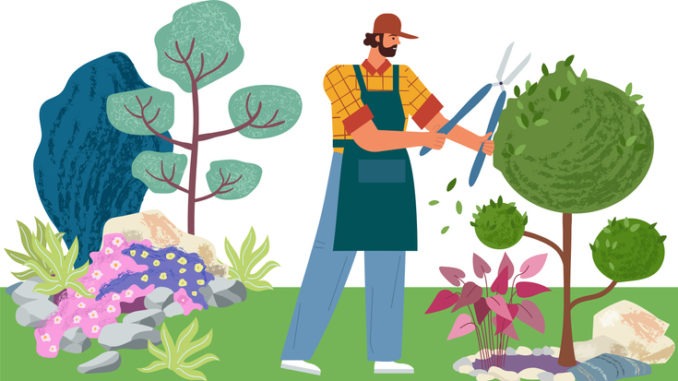
Kathryn Wheeler discusses how to unlock the full potential of the wellness trend that you’re probably already following – without even realising it
CREDIT: This is an edited version of an article that originally appeared on Happiful
‘Pottering’; it’s a word that almost speaks for itself. For me, it conjures up images of slow-paced, menial, homey tasks completed one after the other – a gentle shift down the to-do list, moving without urgency or compulsion. I think of days spent at home, clearing up the garden, sorting through a pile of paperwork, and then a walk to the shops for some lunchtime essentials. It seems that author Anna McGovern and I are on the same page, as she explores the surprising power of this everyday practice in her book, Pottering: A Cure for Modern Life.
For Anna, ‘pottering’ can be defined as an unplanned, slightly unnecessary, activity from which you derive tiny bursts of pleasure. “Often it means spontaneously occupying oneself with something inconsequential; looking out of a window, rearranging pencils in a pot, or filling up a bird feeder,” explains Anna. “Sometimes one’s pottering takes a domestic turn – oiling a hinge, sweeping a floor, rearranging a cupboard; at other times, pottering takes you out of the home – down to the shops, or popping by a neighbour’s.”
Over the past year, a lot of us have been taking a closer look at our everyday lives, and the things within our homes and local areas. Lockdown has come with immense challenges, which can’t be overlooked, but it has also prompted us to assess the pace of our lives; ‘pottering’ through the days is something that many of us will now be familiar with.
But did you know that this simple state of mind could have real wellness benefits? A study published in the journal Mindfulness found that completing homey tasks, like washing up, can lead to a 27% reduction in nervousness – and this makes sense because, sometimes, the thing that we need to do most for our mental health is, well, as little as possible. It’s about completing simple tasks that make us feel productive and in control – things that are low-pressure, which we can do without expending too much of our mental or physical energy.
“I like that, when I’m pottering, I’m not rushing and can go at my own pace – whether I potter for a moment, or a couple of hours,” says Anna. “These two things are true simultaneously; everyone’s an expert potterer and no-one is an expert potterer. You can do it frequently but you cannot do it well. There is no benchmark for success, and so no-one can judge your performance when you potter. That can be very liberating. When I booked a day off, I felt the difference after six weeks. It isn’t thrilling, but it is restful, and I looked forward to having time that was my own.”
And that’s what, at its core, pottering should be about. It’s a break for your mind, while you still make those small steps forward. When you think about it, you’re probably already pottering in your own life – we all do it, simply because there are tasks that need to be done. The difference between this and what Anna does lies in the intention.
You are setting time to work through things in a low-stakes way. You’re simultaneously switching off and valuing and planning your time productively – both in terms of ordering your space and by prioritising those everyday, little wins.
When things feel tough, or overwhelming, as they often can do with everything that’s going on in the world, it can help to go back to basics – and there’s simple, soothing joy to be found in the art of pottering.


Be the first to comment